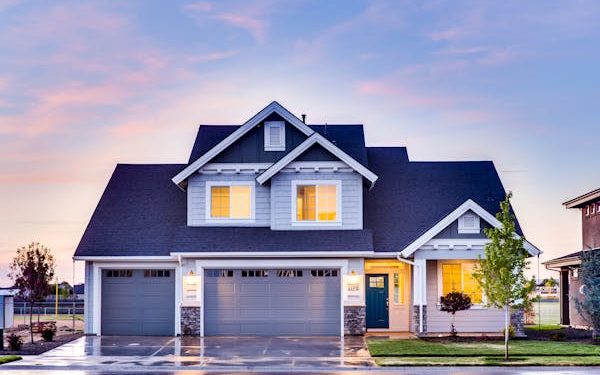As technology continues to advance at a rapid pace, the future of smart homes looks more promising than ever. With new innovations constantly emerging, it’s easy to get excited about the possibilities. But when it comes to investing in smart home technology, it’s important to know what’s worth your time and money. Not every gadget or device will provide the same level of value or longevity. So, if you’re thinking of upgrading your home, here are some key areas in the smart home world that are definitely worth considering.
1. Smart Security Systems
Security is a top priority for most homeowners, and smart technology is making it easier to protect your property. Smart security systems now offer a range of features such as video surveillance, motion detection, and remote monitoring, all accessible from your smartphone. Investing in a smart security system with cameras, doorbell cameras, and motion sensors can give you peace of mind, whether you’re at home or away.
Many of these systems are designed to integrate seamlessly with other smart devices in your home, such as smart locks and lighting. For example, you can set up your system to alert you when someone approaches your front door, while also turning on your porch lights automatically. As an added benefit, some smart security systems can also help lower your home insurance premiums, making it a worthwhile investment for both safety and savings.
2. Smart Lighting Solutions

Lighting is one of the most popular and accessible smart home upgrades. Smart bulbs and lighting systems allow you to control the ambiance of your home through voice commands or mobile apps. Whether you want to dim the lights for movie night or change the color to set the mood, smart lighting gives you flexibility and convenience at your fingertips.
Beyond convenience, smart lighting can also help improve energy efficiency. Many systems allow you to schedule lighting to turn on or off automatically, ensuring that lights aren’t left on unnecessarily. This can lead to lower energy bills over time. Additionally, some smart lighting solutions have built-in sensors that detect motion, so lights turn on when someone enters a room and turn off when no one is around.
3. Smart Thermostats
Energy efficiency is another major consideration for modern homeowners, and smart thermostats are one of the most effective ways to optimize energy usage. These devices learn your habits and adjust the temperature in your home accordingly, keeping you comfortable while saving energy. For example, a smart thermostat can lower the heat or air conditioning when you’re not home, then adjust it to your preferred temperature by the time you return.
Some smart thermostats even have features like geofencing, which can detect when you leave or return home and adjust the temperature automatically. These devices are a great investment for anyone looking to reduce energy consumption and make their home more eco-friendly.
4. Smart Appliances
Smart appliances are becoming more common in today’s homes, offering everything from refrigerators that track your groceries to ovens that can be controlled from your phone. Investing in smart appliances can make your life more convenient and save time in the kitchen. For example, a smart refrigerator can send you reminders when you’re running low on essentials or when items are about to expire. Similarly, a smart oven can allow you to preheat it remotely or monitor cooking progress while you’re away.
While these appliances can be more expensive upfront, they often offer significant long-term benefits. They can improve efficiency in your home and reduce energy costs, making them a solid investment for those who value convenience and technology.
5. Smart Home Hubs
A smart home hub acts as the central command system for all your smart devices, allowing you to control everything from one platform. Whether it’s your security system, lighting, or smart thermostat, a hub can integrate all these devices and allow you to manage them seamlessly. Some hubs even offer voice control features through virtual assistants like Alexa or Google Assistant.
Investing in a smart hub can help simplify the process of managing your home’s technology, making it more user-friendly and efficient. If you’re adding multiple smart devices to your home, a hub is definitely worth considering to keep everything connected and easily accessible.
6. Voice-Controlled Assistants
Voice assistants like Amazon Alexa, Google Assistant, and Apple Siri have become essential parts of many smart homes. These devices can control a wide range of smart home products, play music, answer questions, and even provide weather updates. They can be particularly useful for hands-free control of your home.
Many voice assistants can integrate with third-party smart devices, allowing you to control everything from lights to temperature with simple voice commands. This type of convenience can make your daily routines smoother and more efficient. Given their relatively low cost and versatility, voice-controlled assistants are a great way to enhance your smart home setup.
7. Smart Plugs and Outlets
For those on a tighter budget or looking to ease into smart home technology, smart plugs and outlets are an affordable and simple way to add automation to your home. These devices plug into your existing outlets and allow you to control regular appliances through your smartphone or voice commands. From lamps to fans, you can turn devices on or off remotely, schedule them, or even set up routines for automatic operation.
Smart plugs can also help reduce energy waste by allowing you to turn off electronics that are left on standby, such as televisions or chargers, when they’re not in use.
8. Smart Blinds and Curtains
Though often overlooked, smart blinds and curtains are a growing trend in smart home technology. These window coverings can be controlled via a mobile app or voice commands, allowing you to adjust them for privacy, light control, or energy efficiency. Some models even offer automatic schedules, so your blinds open in the morning to let in natural light and close in the evening for privacy.

For homes with large windows or areas where manual adjustments are inconvenient, investing in smart blinds can be a real game-changer, providing both convenience and added value to your home.
Investing in smart home technology is about more than just gadgets—it’s about creating a home that is more efficient, secure, and tailored to your needs. By focusing on key areas like security, energy efficiency, and convenience, you can make thoughtful investments that will enhance your living space for years to come.














